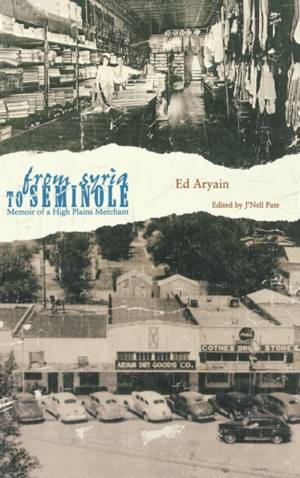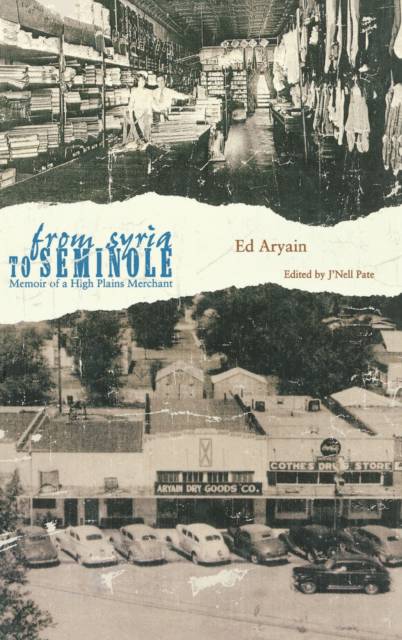
- Retrait gratuit dans votre magasin Club
- 7.000.000 titres dans notre catalogue
- Payer en toute sécurité
- Toujours un magasin près de chez vous
- Retrait gratuit dans votre magasin Club
- 7.000.0000 titres dans notre catalogue
- Payer en toute sécurité
- Toujours un magasin près de chez vous
Description
In August of 1897, in the small village of Henna, Syria, eighteen miles from Damascus, Mohammed (Ed) Aryain was born. As far back as he could remember, Ed dreamed of moving to the United States. In the early twentieth century Syria still suffered from high taxation and control under the Ottoman Turks. Ed saw Syrians who had been to America returning home with gold watches and money to purchase land, and he vowed to do the same. Although his parents did not want him to go, eventually they relented and watched fifteen-year-old Ed begin a 120-mile walk to Beirut to board a steamship. He tells of his emotional first view of the Statue of the Liberty and of his traumatic passage through Ellis Island. Joining the network of Syrians who supported themselves by peddling dry goods, Ed traveled across the Great Plains. Later he rented storefronts in wild oil-boom towns in Oklahoma and Texas. Finally he married an American woman and settled in West Texas, living in Littlefield, Sudan, Brownfield, and finally in Seminole, where he operated his own store on the town square until 1952. But even after decades in the United States, a man never forgets his homeland, and after nearly fifty years in America Ed returned briefly to Syria to visit those who remained of the family he had left behind. Eddie and Jameil Aryain, Ed's two sons, have each written an afterword, providing their perspectives on this unique piece of Americana. "[A] beautifully edited memoir . . . [that] not only puts faces on Syrian emigrants but humanizes them as well" --Great Plains Quarterly J'Nell Pate is the author of six books, including, most recently America's Historic Stockyards: Livestock Hotels, and a weekly history column in her local newspaper. She lives in Azle, Texas.
Spécifications
Parties prenantes
- Auteur(s) :
- Editeur:
Contenu
- Nombre de pages :
- 260
- Langue:
- Anglais
- Collection :
Caractéristiques
- EAN:
- 9780896725867
- Date de parution :
- 15-10-06
- Format:
- Livre relié
- Format numérique:
- Genaaid
- Dimensions :
- 161 mm x 235 mm
- Poids :
- 662 g

Les avis
Nous publions uniquement les avis qui respectent les conditions requises. Consultez nos conditions pour les avis.






